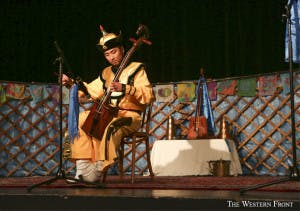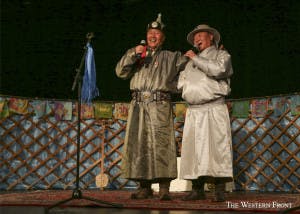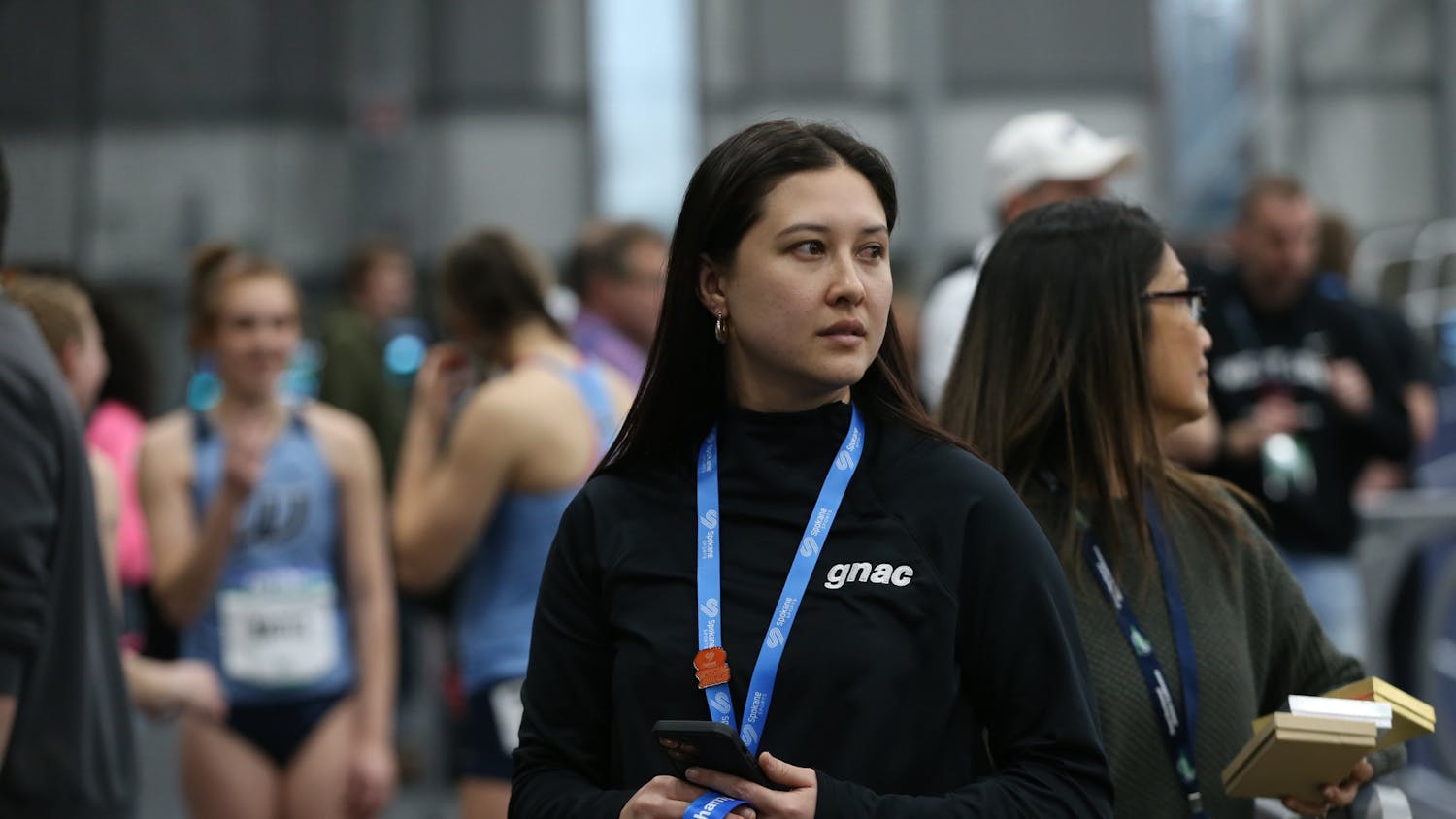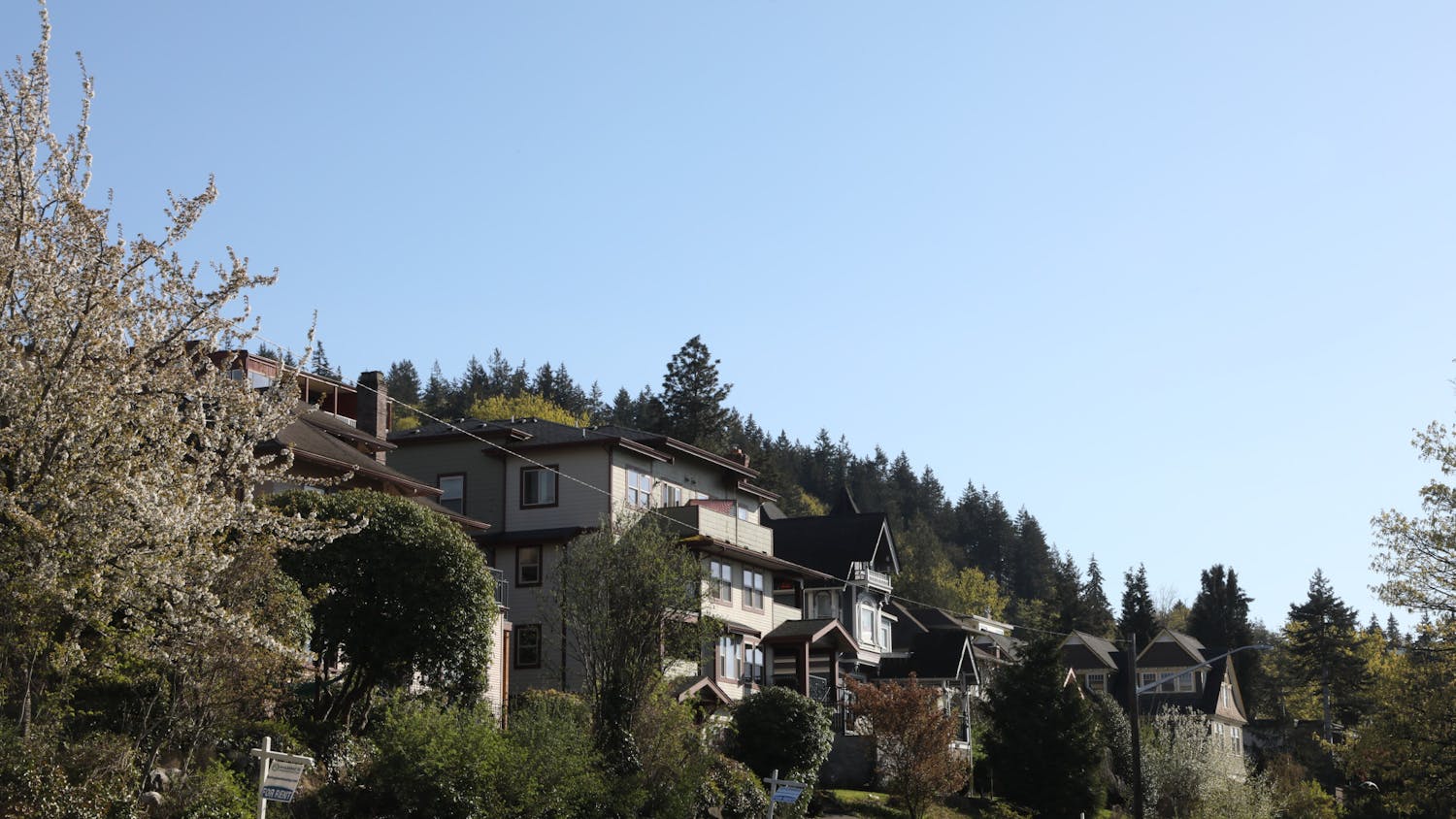
After a number of years on hiatus, the Mongolia Days celebration returned to Western to celebrate the university’s commitment to multiculturalism and highlight its collection of Mongolian literature, which is the largest in North America.
Dr. Charles Krusekopf, the executive director of the American Center for Mongolian Studies, kicked off the two-day celebration of Mongolia Days at Western with his presentation titled “Natural Resource Development in Mongolia – The Impacts on Culture, Environment, and Government.”
Krusekopf spoke in Wilson Library, which houses 12,500 titles about Mongolia, according to the Western Libraries web page dedicated to the collection.
The collection is focused primarily on humanities and the arts and incorporates some material on music, literature, art, religion and medicine, said Mark Greenberg, dean of libraries at Western.
The celebration is a special time to come back and reconnect with those who have contributed and donated to the Mongolian collection at Western, Krusekopf said.
A driving force behind Mongolia Days is a financial contribution the collection received from two sponsors, including retired professor Dr. Henry Schwarz, an expert in the field of East Asian Studies. The donations mark a milestone in the history of Mongolian interest at Western after the Mongolia Days celebration was discontinued due to lack of funds.
One of the goals of the presentation was to spark interest about Mongolia in Western students. Within a crowd of about 40 people, a handful of students showed up to his presentation. These students were Krusekopf’s primary interest, he said.
The presentation also focused on Mongolia’s usage of its natural resources such as oil, copper and coal to accelerate its economic growth. Krusekopf mentioned Tavan Tolgoi in the Gobi Desert, the largest coking coal deposit in the world, a substance that is used to make steel and has the potential of being mined for 60 to 100 years at that location.
Krusekopf said shifting to utilizing natural resources is a fascinating process for Mongolia, the fastest growing economy in the world.
Mongolia Days invited special guests from Mongolia and experts from a series of programs to Western’s libraries to highlight the university’s collection.
Greenberg was heavily involved in the planning of the celebration, and saw the two-day celebration as a way of showcasing Western’s appreciation for Mongolian culture as well as the two financial gifts to the program.

The celebration is a way of recognizing the two donors and thanking them as well, and celebrating the fact that the study of Mongolia is on firmer financial footing, Greenberg said.
The financial donation from the Mongolian collection community at Western will allow the Mongolia program to be reintegrated with other linguistically, historically and culturally-focused courses.
For this reason, he expects to see many students in business, environmental and cultural studies to become interested in Mongolia.
“We offer a summer language program in Mongolia,” Krusekopf said. “We really want to see Western students apply to the fellowships and come to Mongolia.”
Sophomore Olivia Hill found out about the fellowship through her leadership studies class in winter quarter 2015.
It was something she was immediately interested in, as she had worked with international programs before and was particularly interested in service learning and working with the community, Hill said.
As the executive director of the American Center for Mongolian Studies, Krusekopf was interested to restart a collaboration with Western he had in the past.
“We’re trying to rekindle that relationship to collaborate on projects of mutual interest,” Greenberg said.
A project of mutual interest was organizing a series of fellowships, which include trips to Mongolia, at Western. The fellowships are the beginning of this rekindling and allow students to see samples of Mongolia over a short period of time.
“I see this trip as an opportunity to be an ambassador for Western and establish those roots for potential projects, and get Western involved,” Hill said.
The presentation ended with a donation of several books from Mongolian guests at the event. The books will join the other thousands in Western’s broad Mongolian collection.





